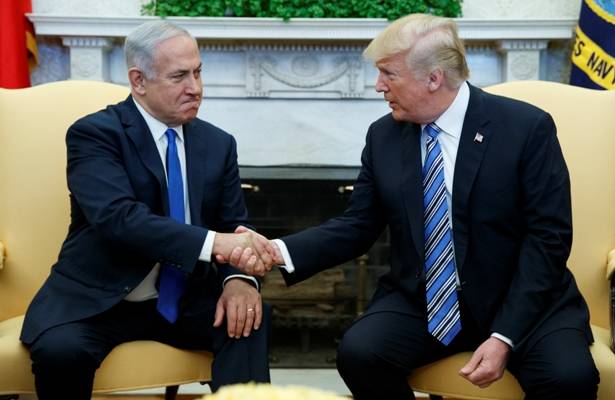Why is the US staying in the Middle East? For Israel, Trump said.
By: United with Israel Staff
President Donald Trump stated that the US would be maintaining its presence in the Middle East for Israel.
In a broad interview with the Washington Post published on Tuesday, Trump was asked about imposing tougher sanctions against Saudi Arabia for the death of Saudi reporter Jamal Khashoggi.
In his response, Trump noted that “if you look at Iran and what they do…[the Middle East] it’s a rough part of the world. It’s a dangerous, rough part of the world.”
Iran remains the world’s leading state sponsor of terrorism, the Trump administration said in an annual report in September.
The State Department’s annual survey of global terrorism accused Iran of intensifying numerous conflicts and trying to undermine governments throughout the Middle East and beyond. Iran’s “terrorist affiliates and proxies,” the report said, “demonstrated a near-global terrorist reach.”
in the interview, Trump said that Saudi Arabia has “been a great ally. Without them, Israel would be in a lot more trouble. We need to have a counterbalance to Iran.”
This statement echoes much of what Trump has said previously about reasons for modulating his response to Saudi Arabia’s involvement in Khashoggi’s death. Speaking to reporters on Thursday, Trump defended the US’ official position on the Khashoggi killing, stressing Saudi Arabia’s key regional role as an ally of both the US and Israel.
“I just feel that it’s very, very important to maintain that relationship. It’s very important to have Saudi Arabia as an ally, if we’re going to stay in that part of the world,” Trump underscored.
“Now, are we going to stay in that part of the world? One reason to is Israel,” he stated, pointing out that oil, previously a chief component in the US’ Middle East policy, “is becoming less and less of a reason because we’re [the US] producing more oil now than we’ve ever produced. So, you know, all of a sudden it gets to a point where you don’t have to stay there.”




